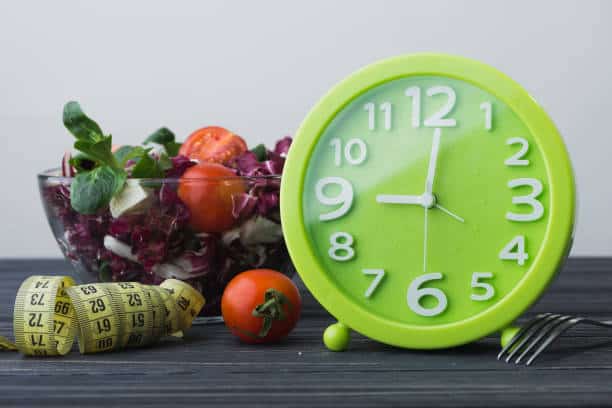Introduction
Irregular fasting has acquired prevalence as a viable strategy for weight reduction and in general wellbeing improvement. The cycle of fasting and eating continues with this approach. You can eat and drink anything you want while intermittent fasting, but you must avoid consuming any calories. In this article, we’ll talk about some foods and drinks that are good for intermittent fasting and show you how to incorporate them into your fasting routine.

What Can You Eat or Drink While Intermittent Fasting?
Q: What Can You Eat or Drink While Intermittent Fasting? A:Intermittent fasting allows for the consumption of certain foods and beverages during the fasting window. It is important to note that the primary objective of fasting is to limit caloric intake, so it is necessary to choose options that are low in calories and won’t disrupt the fasting state. Let’s take a closer look at some suitable choices.
Water
Water is a vital component of any fasting regimen. Not only does it help keep you hydrated, but it also aids in digestion and detoxification. During intermittent fasting, drinking water is highly recommended and should be consumed regularly to support overall well-being.
Black Coffee
Black coffee is an excellent choice while intermittent fasting. It is low in calories and can help curb hunger during the fasting period. The caffeine content in black coffee can also provide an energy boost, making it an ideal beverage to start your day.

Herbal Tea
Herbal teas, such as chamomile, peppermint, or green tea, are permissible during intermittent fasting. These teas are typically free of calories and can be a soothing and enjoyable addition to your fasting routine. Be cautious with flavored teas that may contain added sugars or calories.
Apple Cider Vinegar
Apple cider vinegar has been associated with various health benefits, including aiding digestion and regulating blood sugar levels. Consuming a small amount of diluted apple cider vinegar while fasting is generally acceptable. However, it is advisable to consult with a healthcare professional before incorporating it into your routine.
Bone Broth
Bone broth is rich in nutrients and provides several health benefits. It contains minimal calories and can be consumed during fasting. The collagen and amino acids present in bone broth can support gut health and help alleviate hunger pangs. If you wanna learn more about What Can You Eat or Drink While Intermittent Fasting?
Fruits and Vegetables
Certain fruits and vegetables can be consumed while intermittent fasting, as they are low in calories and high in fiber. Examples include leafy greens, cucumber, celery, and berries. These options can provide essential nutrients and contribute to a well-rounded fasting diet. If you wanna learn more about What Can You Eat or Drink While Intermittent Fasting?

Nuts and Seeds
Nuts and seeds, such as almonds, walnuts, chia seeds, and flaxseeds, can be consumed in moderation during intermittent fasting. They are a great source of healthy fats and can help promote satiety. I hope now you understand What Can You Eat or Drink While Intermittent Fasting?
Intermittent Fasting Supplements
While not technically food or drink, intermittent fasting supplements can be beneficial in supporting your fasting routine. These supplements are designed to provide essential vitamins, minerals, and electrolytes that may be lacking during periods of fasting. It is advisable to consult with a healthcare professional or registered dietitian before incorporating any supplements into your fasting regimen. If you Like this Blog ( What Can You Eat or Drink While Intermittent Fasting?) you also like Below blog too:
Incorporating Intermittent Fasting into Your Routine
Now that we have discussed the various foods and beverages that can be consumed while intermittent fasting, let’s delve into some practical tips on incorporating this eating pattern into your daily routine.
Start Slowly
If you are new to intermittent fasting, it is recommended to start slowly and gradually increase your fasting window. Begin by fasting for 12-14 hours overnight and gradually extend the fasting period as your body adapts. This allows your body to adjust to the new eating pattern more comfortably.
Plan Your Eating Window
To ensure a successful fasting experience, it is essential to plan your eating window strategically. Consider your lifestyle and daily activities when determining the best time to eat. Some people prefer to have their eating window in the morning, while others find it more convenient to eat later in the day. Choose a schedule that works best for you and stick to it consistently.
Stay Hydrated
Proper hydration is crucial during fasting periods. Drink an adequate amount of water throughout the day to prevent dehydration. You can also include herbal teas or infused water to add flavor and variety to your hydration routine. I add one more thing About (What Can You Eat or Drink While Intermittent Fasting?) is you can Drink Water After Fasting.

Listen to Your Body
While intermittent fasting can be a powerful tool for weight loss and overall health, it is important to listen to your body’s cues. If you feel excessively fatigued, dizzy, or unwell during fasting, it may be a sign that the fasting window is too long for you. It is essential to prioritize your well-being and adjust your fasting routine accordingly.
Focus on Nutrient-Dense Foods
When it’s time to eat during your eating window, make sure to prioritize nutrient-dense foods. Include a variety of fruits, vegetables, lean proteins, and whole grains in your meals to ensure that you’re obtaining essential vitamins, minerals, and antioxidants. A well-balanced diet during the eating window will support overall health and complement the benefits of intermittent fasting.
Seek Professional Guidance
If you have any underlying health conditions or concerns, it is advisable to seek guidance from a healthcare professional or registered dietitian before embarking on an intermittent fasting journey. They can provide personalized advice based on your specific needs and help you navigate any potential challenges. Now you Understand What Can You Eat or Drink While Intermittent Fasting?

Conclusion
This Conclusion is About What Can You Eat or Drink While Intermittent Fasting? Intermittent fasting offers a flexible approach to weight management and improved health. While fasting, it is crucial to select foods and beverages that are low in calories and won’t disrupt the fasting state. Water, black coffee, herbal tea, apple cider vinegar, bone broth, fruits, vegetables, nuts, seeds, and intermittent fasting supplements are all viable options to incorporate into your fasting routine. Remember to listen to your body and consult with a healthcare professional or registered dietitian before making any significant changes to your diet or fasting regimen.
Frequently Asked Questions (FAQs)
Q: Can I drink milk or cream during intermittent fasting?
A: No, milk or cream contains calories and can break your fast. Stick to black coffee or herbal tea instead.
Q: Can I consume artificial sweeteners while fasting?
A: It is best to avoid artificial sweeteners during fasting, as they can trigger an insulin response and potentially disrupt the fasting state.
Q: Can I have lemon water while fasting?
A: Yes, lemon water is generally considered acceptable while fasting, as it contains minimal calories. However, it is important to avoid adding sweeteners or large amounts of lemon juice.
Q: Can I consume alcohol while intermittent fasting?
A: It is advisable to avoid alcohol during the fasting period, as it contains calories and can interfere with the fasting state.
Q: Can I have diet soda or carbonated drinks while fasting?
A: Diet soda and carbonated drinks should be avoided while fasting, as they often contain artificial sweeteners and can trigger an insulin response.
Q: Can I use olive oil or coconut oil in my fasting routine?
A: It is best to avoid consuming oils during the fasting period, as they are high in calories and can break the fast. Save them for your eating window.

